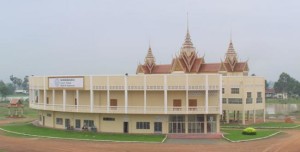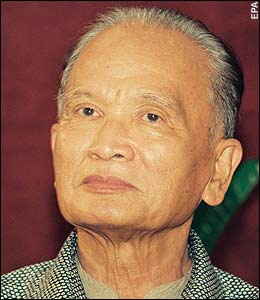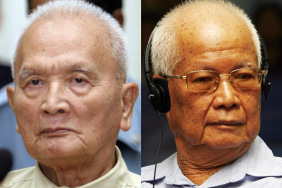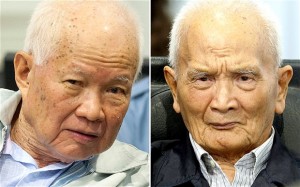On 3 March, the International Co-Investigating Judge Mark Harmon of the UN-backed Extraordinary Chambers in the Courts of Cambodia (ECCC) charged two former Khmer Rouge members with several crimes committed during the Democratic Kampuchea regime.
The suspects in both cases, known as Cases 003 and 004, have been charged in absentia. Both suspects are thought to be among those most responsible for Khmer Rouge atrocities committed between 17 April 1975 and 6 January 1979.
Meas Muth, suspect in Case 003, is said to have had authority over sending people to S-21, the notorious security prison, where they were tortured and ultimately killed. A high ranking navy commander in the Revolutionary Army of Kampuchea, Muth is accused of torture and killing of Vietnamese, Thai and other foreigners captured at sea and on the islands over which Democratic Kampuchea claimed sovereignty. He is also charged with having committed Grave Breaches of the Geneva Conventions of 1949.
Im Chaem, a former district commander was charged with homicide, the crimes against humanity of murder, extermination, enslavement, imprisonment, persecution on political grounds and other inhumane acts at the Phnom Tryoung security centre in Banteay Meanchey province. She was further charged with the crimes against humanity of murder, enslavement, imprisonment and other inhumane acts for her role at the Spean Sreng work site. Continue reading




